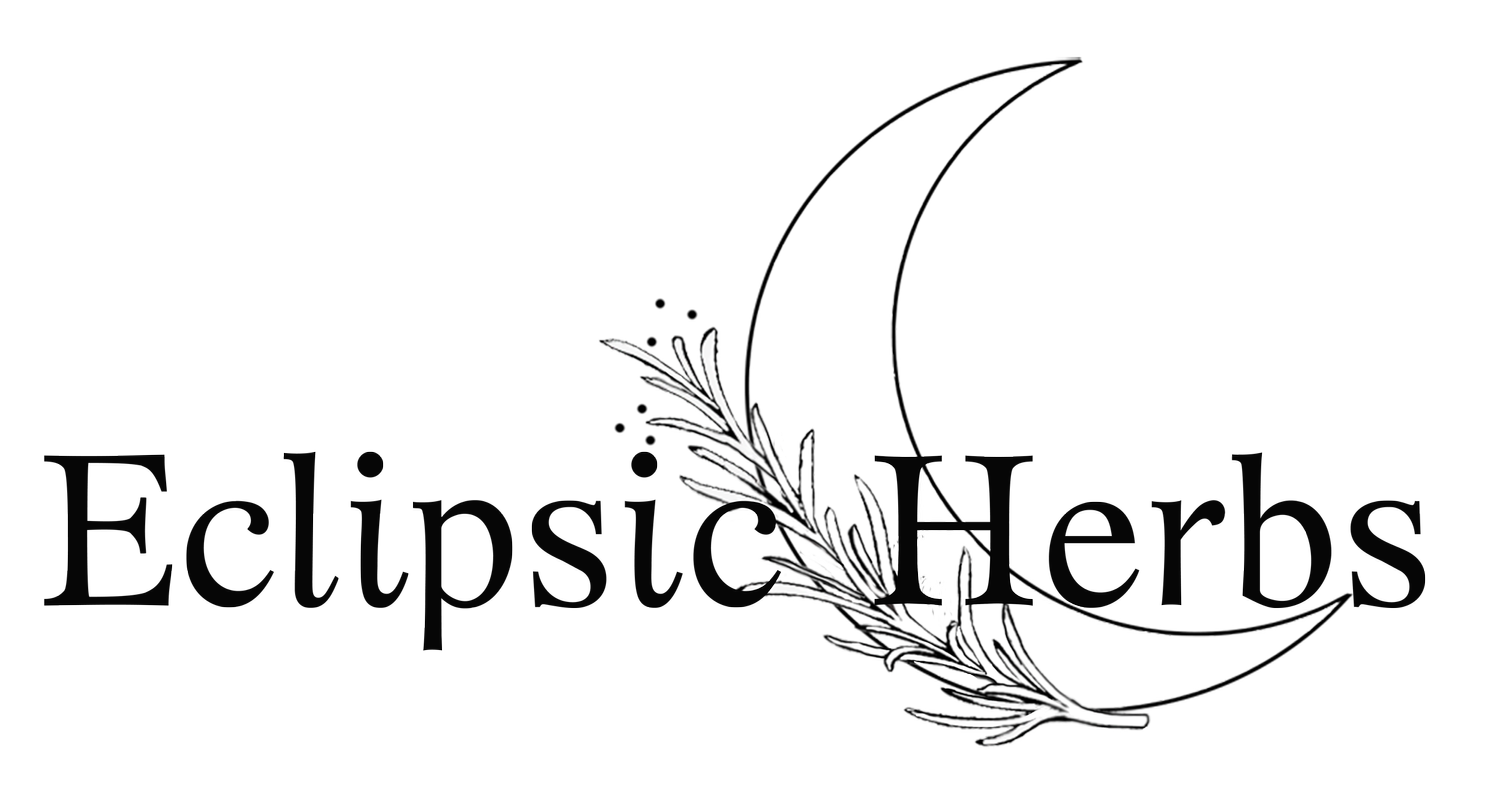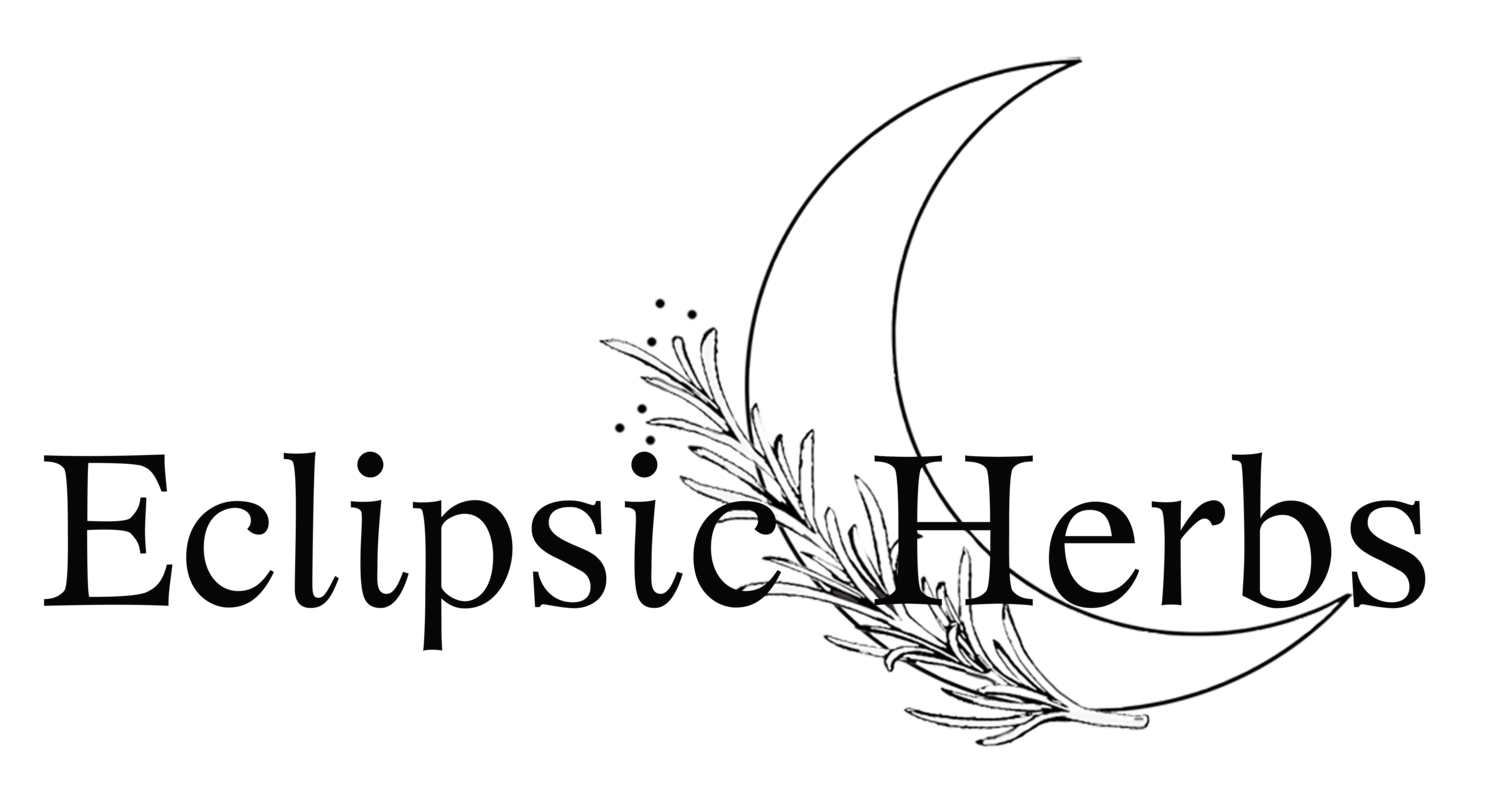5 Herbs to balance your hormones
As a hormone herbalist, I’m naturally looking for ways herbs can help support the body. This was definitely the case when I first learned about herbalism. I was trying to figure out what was going on with my hormones. What I can do to naturally try to rebalance them was how I stumbled upon herbalism and what led me on this path of natural healing. Back when I was doing my own research, trying to find out what herbs could help my hormones, It was definitely very vague. Which now that I know more about it, I can see why it was so vague. It does depend on your own constitution and what type of hormone imbalance it is. But now that I have a better understanding of things like the body, hormones, and everything like that. I can recommend five different herbs that are good to overall rebalance your hormones from a holistic standpoint.
The first herb I would recommend is Nettle also known as stinging nettle. As the name suggests, this plant is covered in almost like microscopic needles that can cause pretty bad reactions if you don't know how to handle them properly. The reaction is similar to that of Poison Ivy. But this prickly Queen is perfectly safe once processed or cooked. It's nutritive rich in vitamins A, C, E, F, K, P, Zinc, formic acid, magnesium, iron, copper, selenium, boron, bromine, chlorine, potassium, phosphorus, and iodine. A cup of Nettle has about 32-42% of your recommended daily calcium intake. It also has vitamin B complexes and antioxidants, which as you know, help fight free radicals. So, you can probably see why this herb is so great for your hormones. One of the common reasons for hormone imbalances is nutrient deficiencies. Especially if you've been on birth control in the past. Either you just got off birth control or have been off of it for a couple of years. That’s because it does take a while to be able to get those storage levels back up once they’ve been depleted. This is also the case if you're chronically stressed. Cortisol can deplete some of your most important nutrients like Magnesium. Nettle is also anti-inflammatory, helping your digestive system run smoothly so that it can get rid of any used up or excess hormones in your system, which I’ll touch a little bit more on later.
The next herb for balancing hormones is Red Raspberry leaf. Like Nettle, Raspberry leaf is in between plant medicine and food. Meaning that it's safe to have in most quantities. But just as a little disclaimer, it's best to tell your doctor about what herbs you are taking because they are considered supplements and they can interact with prescription medication. Raspberry leaf is great for most hormone imbalances because it's nutritive-rich. It also helps naturally rebalance hormones. Some herbs like Vitex (which I'll talk a little bit more about later) are good for a specific imbalance. While Red Raspberry leaf on the other hand is good at rebalancing in general. It has an affinity for the ovaries and uterus. So, it's great for issues like painful periods, heavy periods, PMS, and PCOS. On the nutrition side, it has a lot of calcium, magnesium, iron, vitamin K. And it also has a group of compounds called fragarine, which directly works with the smooth muscles of the uterus to relax if they are too tense and to strength, which can help with cramping and spasms. You do need a higher quantity of Raspberry leaf than most supermarket teabags. Around 4-8 grams taken as a tea, 3x a day is recommended.
This next herb is probably one of my favorite, Dandelion root. Dandelion root has quite an affinity for the liver. Meaning that it helps support it. When it comes to your hormones, it's in charge of filtering out and processing any used up or excess hormones in your body. But if your liver is sluggish or overwhelmed it can lead to those hormones accumulating and eventually being reabsorbed which can cause estrogen dominance. That's why making sure that your digestive system is working optimally is one of the key pillars of getting your hormones balanced.
Speaking of pillars to getting your hormones balanced. Chronic stress is another main culprit of being a hormone disruptor. That's why I always recommend an adaptogen to most of my clients when I work one on one with them. Adaptogens, like the name suggests help you better adapt to stress or better deal with stressors. One of the ones that I recommend the most and it's gotten pretty popular nowadays is Ashwagandha. Ashwagandha is indicated for most reactive conditions like stress and anxiety. It even helps to regulate sleep patterns if you suffer from insomnia. When it comes to insomnia, what some people don't know is that it can be linked to a hormone imbalance. If you're chronically stressed, cortisol can steal the precursor to progesterone. It also steals from your magnesium storage. Magnesium is the precursor to melatonin. So if you're chronically stressed, that can be directly linking to your insomnia. That's why making sure that you take care of any unchecked stress is so important. Ashwagandha will help shift that fight or flight response back to the rest and digest. It's high in iron too!
Alright, so finally let's cover Vitex aka Chasity Berry. As a hormone herb, it’s gotten an amazing reputation and that's rightfully so! Vitex was one of the herbs that definitely helped me the most when I was going through my hormone imbalance. Vitex is specifically amazing for those that have low progesterone levels. It's good for PMS, painful periods, hormonal breakouts, and painful breasts before your period. But unlike the herbs that we've talked about so far, Vitex is only indicated when there are low levels of progesterone. It can make other symptoms like anxiety worse if your hormone balance isn't from progesterone. For instance, for those individuals who have high levels of progesterone or if the imbalance isn’t between your estrogen and progesterone, it could be your thyroid or testosterone levels. Those types of imbalances aren’t indicated for Vitex. There’s also a certain way that you should be taking vitex. It's best taken at the same time every morning. Starting on the last day of your period, then continuing to take it up until you start your period, and then repeating that process for a couple of cycles. You should be taking vitex for only up to 6 months at a time.
Now I know I threw a couple of herbs out there for you, so just kind of as a recap. The five herbs I recommend are Nettle, Red Raspberry leaf, Dandelion root, Ashwagandha, and vitex (if it applies to you). Now let's go over how I would recommend taking these. It does depend on if you know what kind of hormone imbalance you have. But the best way to take these is together because they work synergistically when they're in pairs. Ideally, I recommend taking 3-4 together. Specifically, Nettle because it's so nutritive rich, Red Raspberry leaf because it covers most imbalances and helps overall holistically, Dandelion root to help support your digestive system, and Ashwagandha if you’re overstressed. Now, if you don't know what type of hormone imbalance that you have, it's always good to work with someone that specializes in hormone imbalance. That way you can see what kind of herbs would work best for your personal situation. Another reason why it's good to be working with someone is that your constitution also should be taken into consideration. A brief summary of the constitutions is that there are four primaries. Dry/ Wet and Cold/ Hot. There are a couple more but to make it simple, these are the four basics. Constitutions work in pairs. For instance, I have a Dry/ Hot constitution, meaning that I get hot very easily, my skin is usually on the dryer side, I can't have too many spicy foods, or else I get acid reflux. On the other hand, someone that has a Wet/ Cold constitution is someone that skin is most likely moist, usually has an excess of phlegm or mucus, and gets cold easily. Plant medicine does interact and affect your constitution. Let's say you are someone who is usually very cold, especially your hands and feet. You also have a wet constitution so not only are you cold, but your skin is also a little bit damp and you tend to be stuffy. If I give you say, Slippery Elm, which is a moistening herb. It might make your symptoms of stuffiness worse. It might make you even more phlegmy. Or let's say you have a Dry/ Hot constitution like myself and you take some cayenne or ginger, which is are dry/ hot herbs. It could make your digestive system more acidic or make you more sweaty or even dehydrated. Now, most of the herbs I did recommend are a little bit more on the drying side. But they shouldn't shift your Constitution too much.
When it comes to figuring out how much herbs to take. It's always good to experiment a little first. Try them individually and see how your body reacts. When it comes to how much, to not make things too complex I would use the folk method of taking herbs. Meaning, measuring them by parts. I would recommend one part Raspberry Leaf and Nettle. Two parts Dandelion root and then three parts Ashwagandha. These are slow-acting herbs so it can take a couple of cycles to see noticeable results. So have patience both with the herbs as well as yourself.
If you’re ready to start your healing journey, then I invite you to check out my Hormone Alignment Program. It’s a 3-month program to get your hormones balanced and learn how to keep them that way!
Click below to learn more



